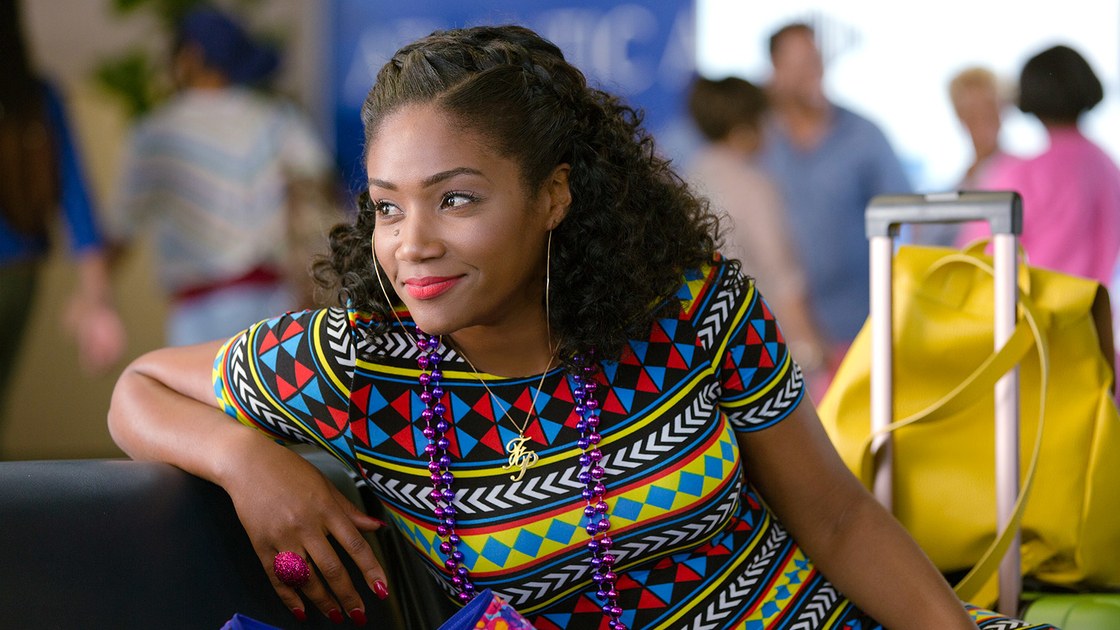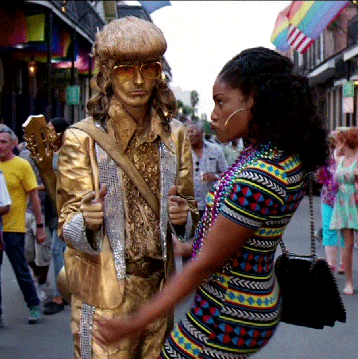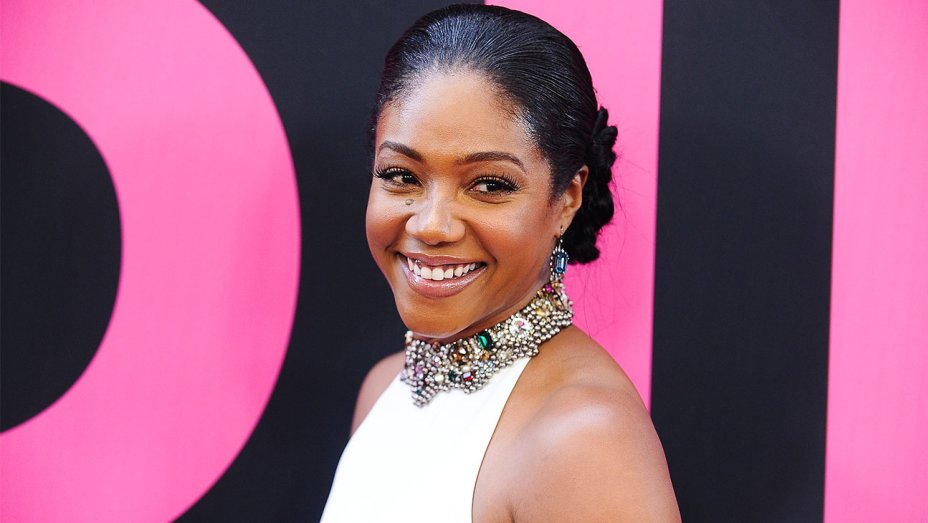by Chris Feil

Tonight Tiffany Haddish will be hosting Saturday Night Live in what some are hoping will be the beginning of a Best Supporting Actress campaign for her breakthrough role in Girls Trip. While it’s been unclear if the studio would be campaigning her, Haddish deserves the kind of groundswell effort that makes awards groups take notice.
How likely are her chances? Melissa McCarthy’s Bridesmaids nomination has been the obvious comparison, at least in terms of recent Oscar history - summer hit, female ensemble comedy, a presumptive “unlikely” narrative. But in her performance I see much more than that. To this viewer, she recalls the hilariously warped pathos of Madeline Kahn, the lovability of Octavia Spencer, and the imposing confidence of Rita Moreno. That’s high praise for sure, but gets at the full spectrum of her work that I’d wager hasn’t been fully explored...
 Naysayers are already quick to reduce the dimension of her performance (not to mention the complete tour de force tornado of her comic heights) to empty crassness, but they ignore anything beyond the profane. As if Oscar nominated performances are free of naughty acts or reflect solely any one person’s taste. Sure Dina pees, jokes about hiding weed in her orifices, and forever changes how you look at grapefruit. But Haddish also makes her a complete human being.
Naysayers are already quick to reduce the dimension of her performance (not to mention the complete tour de force tornado of her comic heights) to empty crassness, but they ignore anything beyond the profane. As if Oscar nominated performances are free of naughty acts or reflect solely any one person’s taste. Sure Dina pees, jokes about hiding weed in her orifices, and forever changes how you look at grapefruit. But Haddish also makes her a complete human being.
Though let’s not side-step the dirty jokes, because to do so would be to cut the joy of her performance off at the knees. Other comedians would kill for a catchphrase as instantly winning as “It’s a bootyhole!”, but it’s her particular bemused giddiness that shines. She’s unflinchingly bold and sexually empowered, but her impulse is always motivated by love. No breakthrough performance this year comes for the audience with such physical force while landing with such sweetness.
To praise the effectiveness of her comedy shouldn’t fall on deaf ears. It’s commonplace to bemoan how Oscar ignores or doesn’t value the difficulty in crafting character through comedy, but it remains so. And race is a crucial piece of that - much of the negative talk against her performance I’ve seen simply underlines how white audiences disregard comedy by and for black audiences as insignificant. It’s transparent and infuriating.
Haddish also has the added ability of making it look effortless no matter how effortful Dina is. She flies off the handle, deftly delivers an unexpected punchline, snatches every opportunity to make the film a good time, and yet its the audience that breaks a sweat trying to keep up. Here’s where the comedy/drama awards divide remains true in regards to Haddish’s work: we regularly reward actors for not holding back in “serious” material, so why not for something lighter?
It’s silly to claim that her performance is just the jokes, as well. It’s kind of masterful how Haddish builds Dina almost explicitly through punchlines, how the jokes reveal the woman underneath. Dina is that friend, the one who can’t keep their mouth shut, whose stream of consciousness is a tide to be waited out rather than fought against. But Haddish also plays her as the friend that avoids her own fear of rejection, working her ass off to be loved. It’s a performance of fascinating and almost constant deflection from what ails her.

When Jada Pinkett Smith’s Lisa mentions this later in the film, Haddish smartly underplays the moment. On the page it’s maybe not as satisfying for Dina to not pour her heart out, but Haddish makes it feel honest, monumental that she even acknowledges that she’s the friend group squeaky wheel. She hints that the same defensive anger that Dina unleashes to protect her friends sometimes turns inward toward herself, but doesn’t indulge further. Hers is a more complicated sentimentality than the film has, one that avoids pat conclusions. It takes a lot of bravery to not ask for our sympathies, and a whole lot more brains to navigate the cracks in Dina’s confidence through laughs rather than tears. Nothing stands in the way of the comedy.
In this regard, Haddish makes you think about the intricacies of friend group dynamics, making the film’s more broad depiction of friendship even more interesting. On one hand it’s easy to miss the layers to what Haddish is doing just like how this particular member of a friend group is often taken for granted. But like that friend, it’s time to start giving this performance the credit it deserves.